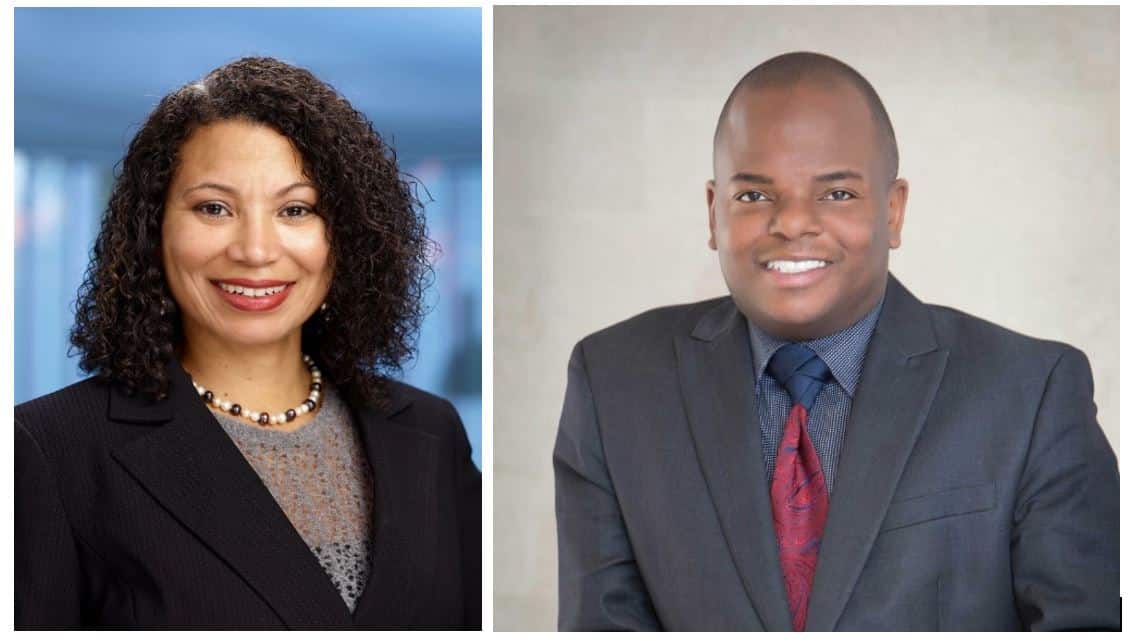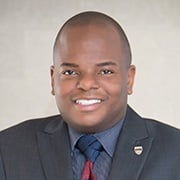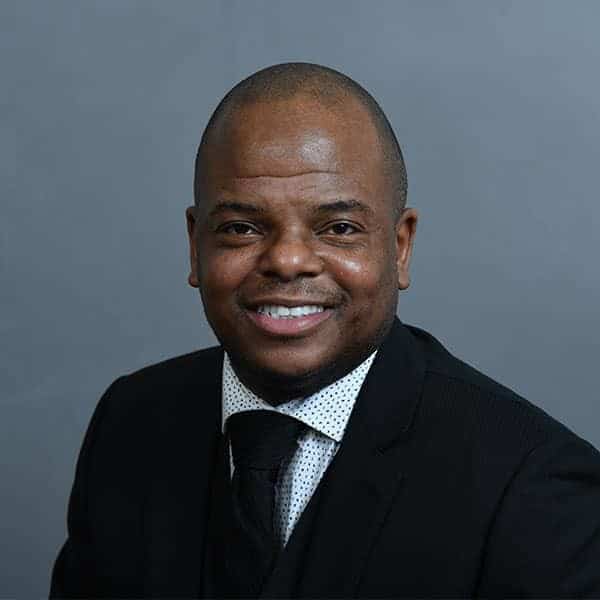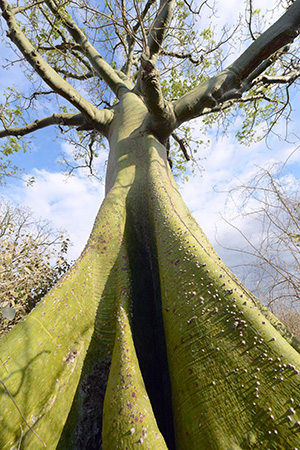12 Sep2023
By Monika Williams Shealey and Jacob Easley II
This article was reprinted with permission from Diverse: Issues In Higher Education.
The recent U.S. Supreme Court ruling that affirmative action in college admission decisions was unconstitutional sent shock waves throughout the higher education community. Many institutions seeking to balance the racial composition of their student bodies are left to wonder about the next steps. Seen as a victory for some who view themselves as a new unprotected class, the ruling represents a setback for others who have experienced marginalization based on their race. Yet leading up to the federal ruling, a string of state legislative actions — each seeking to hobble or even decimate diversity, equity, and inclusion (DEI) activities and programming on university campuses — provides a telling story of a divided national mindset.
Coinciding with the COVID-19 pandemic, the ruthless death of George Floyd and many other African Americans who suffered police brutality ushered in cries for racial justice that reverberated across all sectors of society. Higher education quickly doubled down on its DEI commitment, reaffirming the importance of safe learning spaces for marginalized and underrepresented groups. At the same time, former President Trump’s executive order promulgated opposition for a racialized and sexualized America. The order sought to disavow and exterminate any notions of historical or contemporary racism and sexism in the foundation and fabric of the American Republic.
29 Oct2021
By Kimberly White Smith and Jacob Easley II
This op-ed originally appeared in Diverse Issues in Higher Education and is reprinted with permission.

Kimberly White-Smith and Jacob Easley
I love America more than any other country in the world and, exactly for this reason, I insist on the right to criticize her perpetually. – James Baldwin
The momentum of social and racial justice fueled by recent events finds us at a significant crossroad with divergent paths—one path opening to opportunity and one leading to entropy. The approach we choose to follow will affect society and the lives of many for generations to come. Should we choose the way of opportunity, we must seriously grapple with the debates and our commitment to preserving a true democracy. Should we select the other, we accept the deterioration of hard-earned civil rights—choosing to abdicate to systems, laws, and politics that have historically disadvantaged those unable to make a living wage and people of color. As deans of educator preparation programs who work closely with the nation’s two largest school districts (New York City Department of Education and Los Angeles Unified School District), we understand the relevance of education. It is the core vehicle for liberatory practice and for championing American democracy. If education is the road to national mobility, and we believe it is, we must preserve the mechanisms and freedoms to critique and examine the governing structures of our society.
18 Oct2021
By Jacob Easley II

The New York Association of Colleges for Teacher Education (NYACTE) is hosting its annual conference jointly with the New York State Association of Teacher Education. The 2021 conference is entitled Educational Innovation for Equity and Excellence. Progressively delivered in a virtual format September 30 through November 2, all events are free of charge. It is not too late to join us for an interactive member presentation that will take place on October 21 from 1:00-3:00 p.m. EST. In addition, asynchronous (pre-recorded) paper presentations are also available.
The conference highlights the ways in which New York educator preparation programs (EPPs) and PK-12 engage in partnerships and innovations for advancing educational equity. The conference addresses ways in which state level policy and local practices address programming for greater outcomes among diverse student populations and school communities. The conference concludes with our keynote speaker Elaine Gross, who will challenge the profession in its efforts for racial justice.
23 Apr2021
By Jacob Easley II

The COVID-19 pandemic made a profound impact our nation’s education system. In most states, educational policies have been implemented to promote the wearing of face coverings, physical distancing, virtual instruction, and intermittent school closures based on the rise of positive COVID-19 cases reported in local communities. Despite the many challenges educators face during this unprecedented time, there are lessons learned and a call for transformation that make this the best of times to pursue a teaching career. Here are some reasons why.
04 Dec2020
By Jacob Easley II
This article originally appeared in Diverse Issues in Higher Education and is reprinted with permission.
 The 1787 U.S. Constitution was ratified to establish justice, liberty, and prosperity, but not for all Americans. Like the Constitution, early American educational practices were based on a system of whiteness and elitism. Justice and prosperity for those who comprise marginalized groups have remained largely unfulfilled. We know for certain that we are a pluralistic society. No one group has singularly built this nation, secured its borders, nor defended its values. The plurality of our nation is our strength. As educators, particularly who prepare America’s future teachers, we must double down, now more than ever, on what Horace Mann said, “Education, beyond all other devices of human origin, is the great equalizer of the conditions of men, the balance wheel of the social machinery.”
The 1787 U.S. Constitution was ratified to establish justice, liberty, and prosperity, but not for all Americans. Like the Constitution, early American educational practices were based on a system of whiteness and elitism. Justice and prosperity for those who comprise marginalized groups have remained largely unfulfilled. We know for certain that we are a pluralistic society. No one group has singularly built this nation, secured its borders, nor defended its values. The plurality of our nation is our strength. As educators, particularly who prepare America’s future teachers, we must double down, now more than ever, on what Horace Mann said, “Education, beyond all other devices of human origin, is the great equalizer of the conditions of men, the balance wheel of the social machinery.”
America has yet to become an equal society, and these societal ills create the need for scholar activism embedded in Critical Race Theory (CRT), which historically documents and names the atrocities carried out in this country in the name of freedom, liberty, and democracy. America’s struggle to uphold the Constitution for all its citizens makes it necessary to examine the structural oppression that encumbers the United State from fully living up to its democratic ideals. Through CRT, scholars across higher education have researched racial inequality that emerged from the social, economic, and legal differences created between races to maintain elite, white interests in this country. If our national laws and practices are to ensure justice and equity, then educators have a great deal of work to do in ensuring the American ideals we teach youth to value in school are a reality for all.
22 Jun2020
By Jacob Easley II
 This article originally appeared on the Graduate School of Education at Touro College website and is reprinted with permission.
This article originally appeared on the Graduate School of Education at Touro College website and is reprinted with permission.
To the Touro GSE community, our candidates, and in particular, the youth and children we serve by way of our educator preparation programs, I write to you in solidarity with the many educators across the United States who collectively speak out against the horrific brutality and the death of George Floyd and many others. The world is watching. These are indeed troubling times coupled with the COVID-19 pandemic.
Our president of Touro College and University System, Dr. Alan Kadish has led the charge for those of us within the Touro academy to “Be part of the solution.” To our Black and brown youth, our first desire is your safety and to let you know you are valued. This too we hold dear for all communities of color. Yet, desires without actions are delusions. We must also move beyond rhetoric and engage the tools of professional educators. This we must and will continue to do as researchers, practitioners, and advocates focusing on educational equity.
24 Jul2017
By Jacob Easley II

During AACTE’s membership renewal season, some of our most active members are sharing what AACTE means to them. Learn more about membership here.
When I first became involved with AACTE, I could not have imagined the influence the organization would have on my career nor the scope of opportunities to contribute to the professional landscape that would follow. For me and so many others, AACTE is like the ceiba, or the tree of life, with deep roots that anchor the profession and a large canopy that sustains myriad resources.
My relationship with AACTE has been a long time in the making, beginning with nascent engagement as a doctoral student in the Holmes Scholars Program. I participated in the first summer policy institute for the Holmes Scholars, organized back then by the Holmes Partnership, George Washington University, and AACTE. That single experience set me on a path toward a wonderful career as a scholar advocate.
10 Feb2015
By Omar Davis and Jacob Easley II
Are you a doctoral student seeking a tenure-track position? Or maybe you have a faculty post but would like guidance navigating the promotion and tenure process? Plan to attend a Tenure Academy in Chicago, April 15-16, being held as a preconference event of the American Educational Research Association annual meeting.
Presented by the National Association of Holmes Scholars Alumni (NAHSA), this second annual event will provide the latest strategies for navigating the tenure and promotion process.










 The 1787 U.S. Constitution was ratified to establish justice, liberty, and prosperity, but not for all Americans. Like the Constitution, early American educational practices were based on a system of whiteness and elitism. Justice and prosperity for those who comprise marginalized groups have remained largely unfulfilled. We know for certain that we are a pluralistic society. No one group has singularly built this nation, secured its borders, nor defended its values. The plurality of our nation is our strength. As educators, particularly who prepare America’s future teachers, we must double down, now more than ever, on what Horace Mann said, “Education, beyond all other devices of human origin, is the great equalizer of the conditions of men, the balance wheel of the social machinery.”
The 1787 U.S. Constitution was ratified to establish justice, liberty, and prosperity, but not for all Americans. Like the Constitution, early American educational practices were based on a system of whiteness and elitism. Justice and prosperity for those who comprise marginalized groups have remained largely unfulfilled. We know for certain that we are a pluralistic society. No one group has singularly built this nation, secured its borders, nor defended its values. The plurality of our nation is our strength. As educators, particularly who prepare America’s future teachers, we must double down, now more than ever, on what Horace Mann said, “Education, beyond all other devices of human origin, is the great equalizer of the conditions of men, the balance wheel of the social machinery.” This article originally appeared on the Graduate School of Education at Touro College
This article originally appeared on the Graduate School of Education at Touro College 